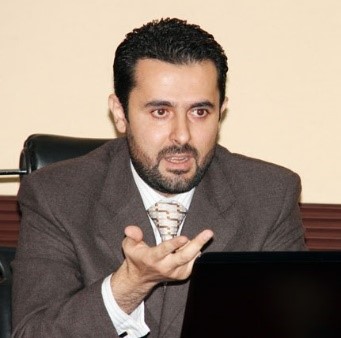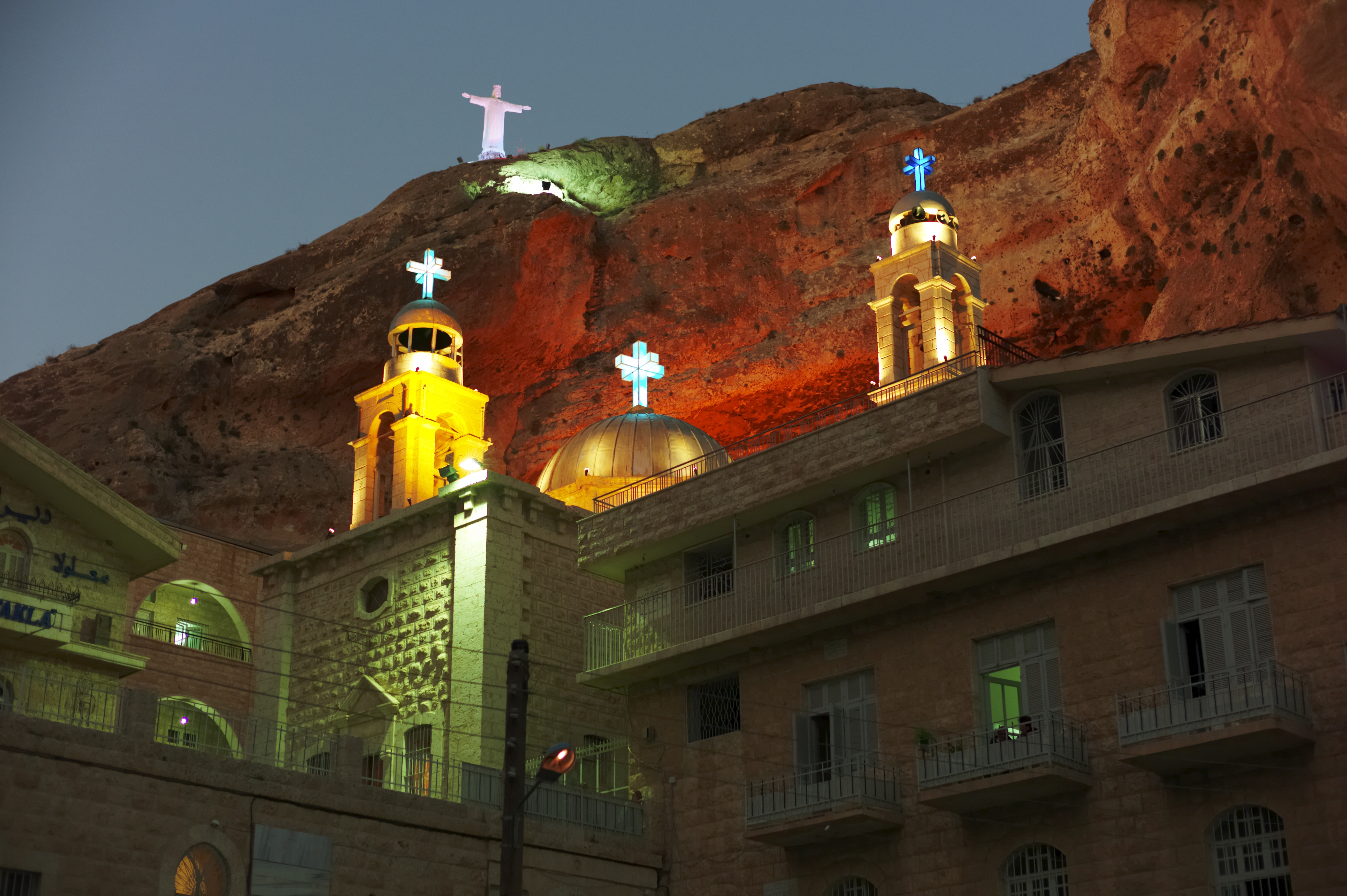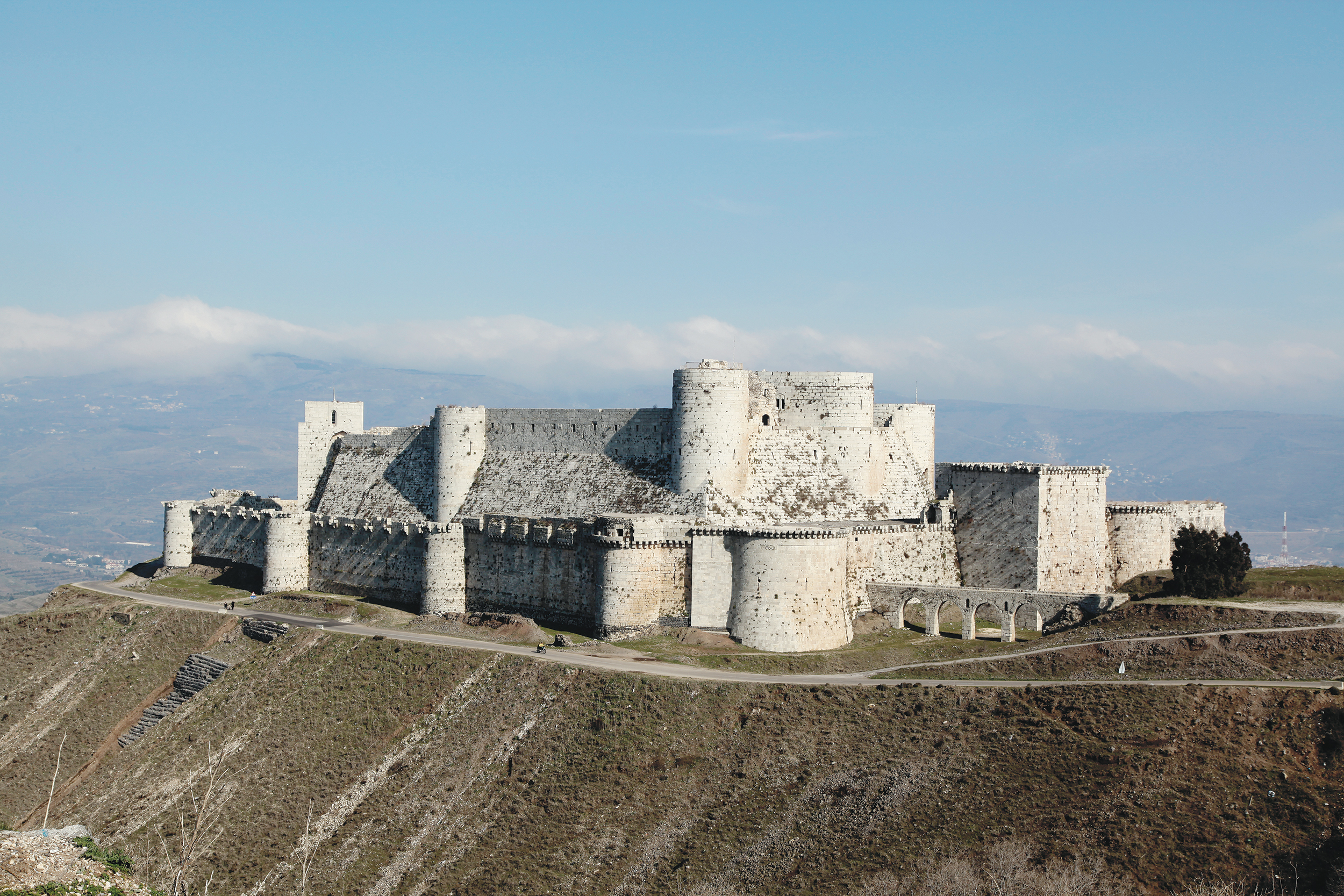Ghazwan Hassna is a PhD candidate at the College of Business. He holds a BSc in Information Technology Engineering from Damascus University, and an MSc in Management & Information Systems from the University of Manchester. Before war hit Syria, he was manager at a joint project run by the Syrian government and the UN. Here he reflects on the peaceful Syria that he knew, his work in the country as it spiralled down into war, and his hopes for the future.
Syria today evokes images of war and extremism, but just a few years ago it was an amazing place — generous people, a beautiful landscape, vibrant cities, with a vast history. I often try to show people images taken in Syria before the war to remind them that Syria wasn't always a harrowing place, and to tell stories of its long history.
Syria has seen thousands of years of ancient history, from the very beginning of civilization, to the time of Alexander the Great, the great Crusader castles of the medieval era, through to the Ottoman Empire which fell apart only one hundred years ago. You can still see its rich culture exemplified by ancient mosques, churches, and old cities, six of which are UNESCO World Heritage Sites. Or rather, they were — until war ravaged the nation.
Before the war, Syria was very stable, culturally rich and there was harmony among all social and religious components. Syrian people led regular lives, nobody needed anything. I am not saying that it was a developed country, but people were living in harmony despite the diversity of the population.
© Mohamed Haykal/Haykal Media
Damascus
I was born and raised in Damascus, the capital of Syria and the oldest continuously inhabited city in the world (first inhabited in 3000BC). For 30 years, no one asked me about my religion or beliefs and I never asked anyone about theirs. Churches were built beside mosques, and people greeted each other as equals at Muslim and Christian festivals alike. We never had the type of extremism which has been imported, planted and fostered during the last few years of war. People didn't know the sound of a gunshot or a bomb going off. Police guns were held as a sort of official custom, decorative, but nothing more. Before the war I never saw a policeman use his gun. The most horrifying thing you would ever witness, would be two people yelling at each other, and then everyone went back to whatever they were doing before. That was the definition of horror before the war.
Economically, Syria was growing steadily especially during the first decade of the new century. The president, new at that time, was educated in the UK and wanted the country to be more open. We started seeing an open relationship with Europe and clear economic development. A lot of industries were expanding and started exporting, including textiles, clothes, and food. Tourism enhanced the economy significantly, with many visitors coming from European countries, to learn more about the rich history and heritage of the region. And more important, economically the country was fairly independent without external loans.
First degree
I took my first degree, a BSc Information Technology Engineering, at the Faculty of Information Technology Engineering in Damascus, then a new institution founded in 2000. The curriculum was very current with regular agile updates. Most of the faculty's graduates found their way to the international IT market. More than 90% of my classmates found work in top international companies including NASDAQ London, Yahoo USA, and Google Ireland. One of my close friends won the Most Innovative Person in Sweden Award in 2015 and is now working in a startup that develops social robots "FurHat". I could name more high achievers — the list is long.
Simplifying business
After a year on a British Council Chevening Scholarship in the UK, I was back in Syria during 2009-2013 the period before the war got serious. Until 2010 the country was extremely peaceful and safe and I used to travel by car with my wife across the country, even after midnight, without any fear. When, in 2011, the uprising started in Libya and then Egypt, no one saw what became known as the "Arab Spring" coming (I would say rather "Arab Autumn"). People were happy and confident, and sectarian tension was non-existent at that time. It would have been difficult to convince anyone that war could happen in Syria.
I led an initiative called the Syrian Initiative for Administrative and Regulatory Simplification (ISRAR) under a joint programme between the European Commission and the Prime Ministry of Syria. At that time, the relationship between Syria and Europe was at its peak. The ISRAR vision was to simplify the business environment in Syria by reducing the time and cost of delivering government services to businesses. The mission was to establish a government structure to perform a comprehensive inventory, mapping, reengineering, managing and digitising of all business-related government services, and underlying related administrative processes. I handed over ISRAR in March 2011 but unfortunately, the initiative stopped a few months after that as the European Delegation closed its offices in Damascus. This was part of the sanctions on the government of Syria, and all experts and consultants had to leave. It was painful seeing your work destroyed after all the ambition and hard work you had put in.
Krak des Chevaliers, a Crusader castle and UNESCO World Heritage Site, that has now been damaged during the war
Foreign intervention
A lot of global events were taking place at that time. China for example was expanding its presence in the Middle East and setting the foundations for the One Road One Belt initiative. Many analysts suggested that Syria would have an important role to play in this, especially with the country's strategic position connecting three continents: Asia, Europe and Africa, and its part in the historic Silk Road. The new "Look East" policy adopted by the Syrian government in 2010 supported this strategy.
However, development was not equal in all parts of the country. Also, after three decades of closed socialist economy the sudden economic development caused a shock to society. All of this was USED and EXPLOITED by some regional powers to trigger the civil war. The sequence of events over the past five years shows that the rise of religious sectarianism and extremism in the country was totally driven by regional powers. Unfortunately, Syrian society fell victim to the political strategies of foreign powers.
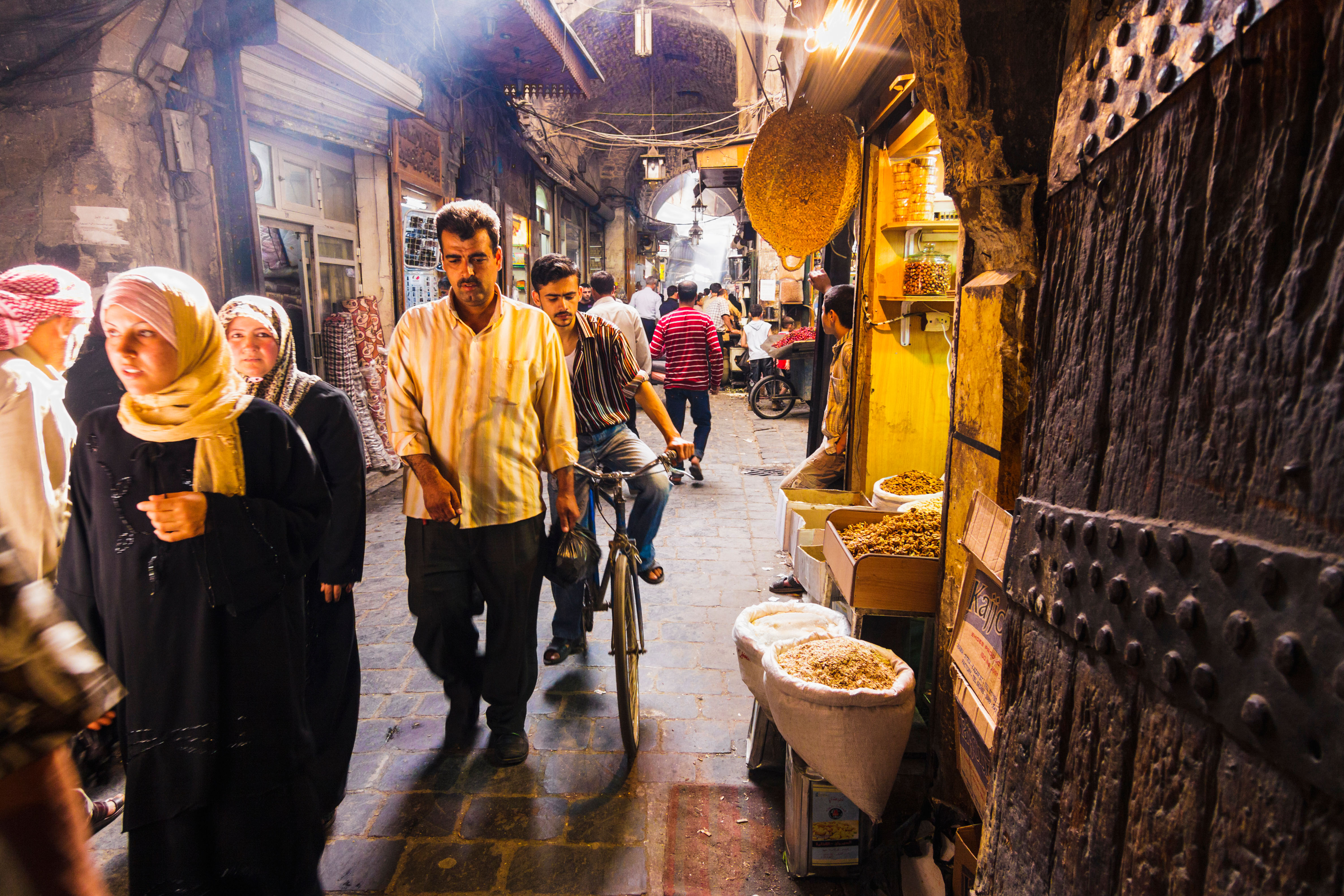 © Luis Dafos/Alamy Stock Photo
© Luis Dafos/Alamy Stock Photo
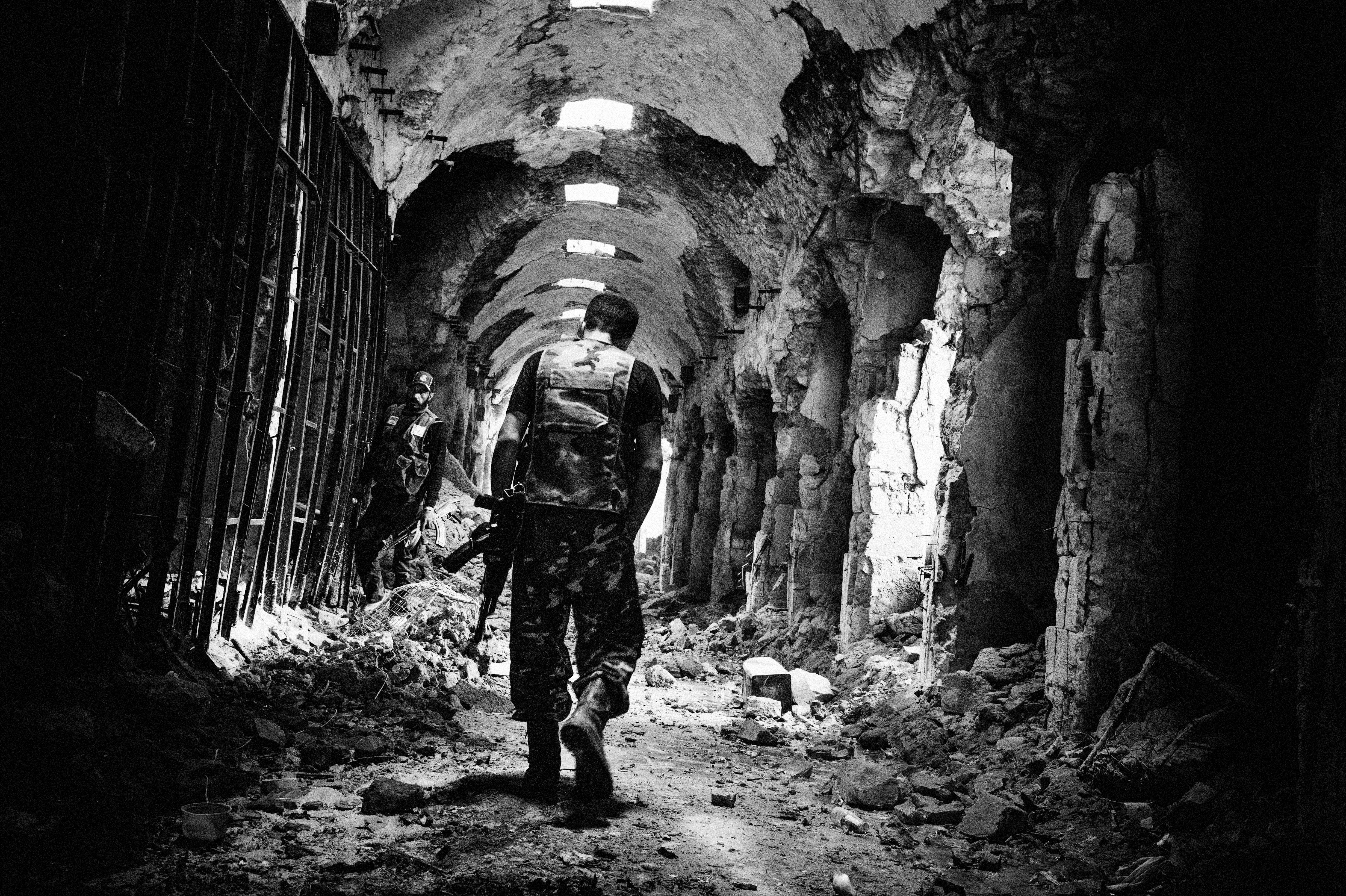 Souks in Aleppo. Above in 2009 and below after an attack in 2013
© Stanley Greene/NOOR
Souks in Aleppo. Above in 2009 and below after an attack in 2013
© Stanley Greene/NOOR
The United Nations
From 2011, I dedicated my work to the e-Government executive team and worked as a manager at a joint project between the government of Syria and the United Nations Development Programme (UNDP). The main goal was to enhance the institutional capacity for e-Government. In such large-scale transformation initiatives, governance is the most critical factor for keeping things on track and making sure that the relevant strategic programmes and projects are delivering their expected planned value. In this senior role, I was responsible for establishing the Monitoring and Evaluation Unit for the National e-Government Initiative in Syria.
Unfortunately, things went downhill quickly, and when the war started both the United Nations and the government of Syria changed their priorities. By the beginning of 2013, the focus had shifted to responding to the humanitarian crises caused by the war. For the last few months before I left Syria we worked on designing and implementing a response system to coordinate the humanitarian effort. Participating parties included local and international organizations, government, business, and not-forprofit organizations. After that I moved to Hong Kong and couldn't keep up with what is going on, but I heard that the project was also closed down by the end of 2013.
Mass destruction
What was happening meanwhile in Syria was dramatic. The mass destruction of the infrastructure was the most obvious result of the war, but actually more threatening was the mass exodus of people. Most of the intellectual people left the country or died during the war. Whilst many people talk about the financial resources required to rebuild Syria, I think creating the circumstances to attract Syrian intellectuals back is the biggest challenge. The country is depopulated. Most of the young generation turned into solders or fighters or escaped the country for a better future. I remember before the war, many Syrian expats were returning to their country as they saw signs of development. Unfortunately, that country no longer remains.
Syria's future
Economically, I think oil will continue to be a source of income for the country. Before the war, agriculture was an important if underutilized sector. Syria has many agricultural products that were not managed properly including oranges, olives, and others. The service sector and technology are other important dimensions. The Faculty of Information Technology Engineering in Damascus is once again proving the excellence of its graduates. Even after all the horror of war, nine Syrian teams participated in the finals of the World Robot Olympiad in 2016. One team took second place. Their project was about using robots to recycle demolished buildings, and produce materials useful for the post-war reconstruction process. This shows how determined the nation is in the face of adversity.
Strategically, Syria can serve as China's gateway to European market access. With its proximity to a large trading bloc of the EU and some of the fastest growing economies in the world in Africa, the Middle East and Asia, it can be reborn as a regional outsourcing distribution centre. Beijing has a track record of longterm involvement in infrastructure development and business partnerships in post-conflict or politically unstable environments including Sudan and Zimbabwe. With the war ended, and international consensus achieved, China can play a central role in rebuilding the infrastructure, and Syria can regain its position as a trading hub at the crossroads of the world.
Hong Kong
I have always been a person who likes change, development, and travel. In Syria, we knew a lot about the West and by default about the Middle East, but we didn't know much about this side of the world. I had travelled to more than 14 countries for study or work but I had never been to East Asia. With all the news about the economic development here, I decided to see for myself. Hong Kong seems for me to have been the perfect destination. The city speaks two languages and this makes it possible for me to communicate and study. It is the financial hub of Asia which makes it an important business destination. It has a long history with the UK which makes it more open internationally. As for City University of Hong Kong, the Department of Information Systems is one of the top in the world. I am hoping to graduate this summer with a PhD entitled Digital Transformation in the Financial Intermediary.
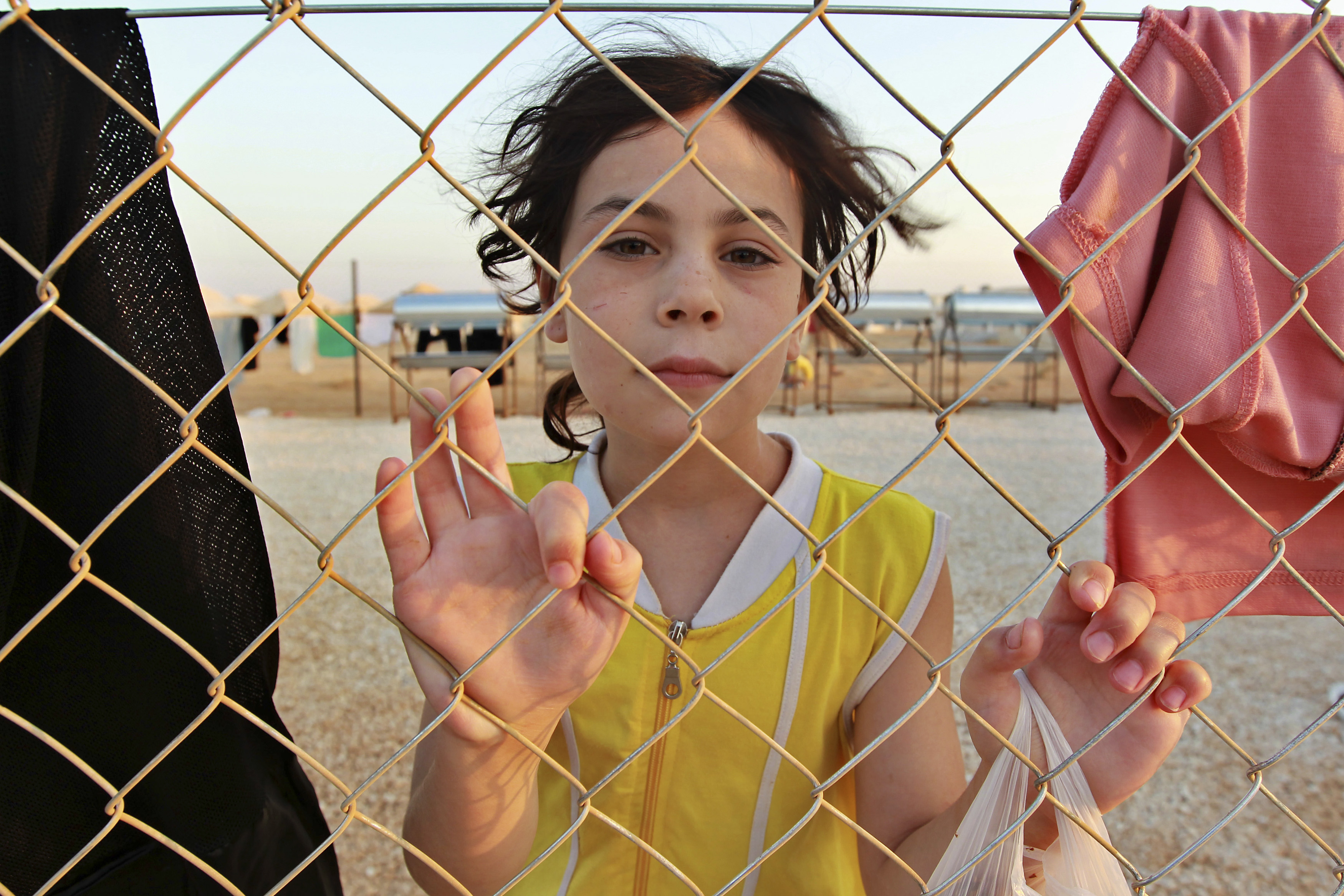 © REUTERS/ Muhammad Hamed
© REUTERS/ Muhammad Hamed
The war in Syria started in the spring of 2011 and has resulted in one of the greatest humanitarian catastrophes of our time. The United Nations High Commissioner for Refugees (UNHCR) estimates that Syrians today make up 40% of the World's 1.2 million refugees who need to be resettled in other countries. The United Nations International Children's Emergency Fund (UNICEF) says that across Syria, 1.75 million children are no longer in school and some 2.5 million are living as refugees or on the run in search of safety. According to the Syrian Centre for Policy Research, 470,000 people were killed between 2011 and 2016.
